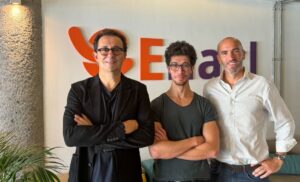A Moroccan startup’s B2B approach to urban transport offers a pragmatic path through Africa’s mobility maze
At 8 a.m. in Casablanca, the morning ritual begins as it does across urban Africa: millions of workers embark on journeys that are often as grueling as the jobs that await them. Traffic crawls through streets designed for a different century, minibuses overflow with passengers, and the fortunate few with cars burn fuel in endless queues. Into this daily struggle steps Enakl, a Moroccan startup that believes the solution to Africa’s transport woes lies not in grand municipal schemes, but in the pragmatic self-interest of employers.
The company has just secured $1.4 million in pre-seed funding led by Catalyst Fund, alongside Renew Capital, Digital Africa, Station F, and 15 business angels. Yet the significance of this investment extends beyond the modest sum: it signals growing recognition that Africa’s transport challenges require novel approaches that work within existing constraints rather than waiting for comprehensive infrastructure overhauls.
Founded in September 2023 by seasoned entrepreneurs Samir Bennani and Charles Pommarede, with Ahmed Omrane as Associate CTO, Enakl focuses exclusively on the corporate commute—arguably the most predictable and therefore solvable component of urban transport. By partnering with corporations and local transport operators, the company offers shared transit solutions that benefit employers seeking to reduce their carbon footprints while improving employee satisfaction.
The model’s pragmatism is striking. Rather than competing with existing transport operators, Enakl works with them, using AI to optimize routes and manage capacity. Having already entered the pilot phase with great success, Enakl is currently managing more than 15,000 bookings per month in Casablanca, with a 20% growth rate each month. This growth trajectory suggests that businesses are indeed willing to pay for reliable transport solutions for their workforce.
The timing appears fortuitous. On March 1, 2024, the innovative and efficient Bus Rapid Transit (BRT) system for articulated buses on dedicated lanes launched into service, with the support of the Morocco Urban Transport Program-for-Results (PforR) financed by the World Bank. This infrastructure development provides the backbone upon which private solutions like Enakl can flourish, creating a hybrid model that combines public investment with private innovation.
For investors, the appeal is clear. Commuting contributes approximately 0.5 tonnes of CO2 per employee annually, making corporate transport a significant lever for sustainability goals that multinational companies increasingly prioritize. Maxime Bayen, Operating Partner at Catalyst Fund, explained the investment thesis succinctly: the company is “revolutionizing urban transit in Africa with a scalable, green solution.”
Yet Enakl’s approach also reflects deeper truths about African urbanisation. Quality public transport can be key to providing solutions to Africa as cities grow, shifting away from more dependence on private vehicles and providing people more equal access to jobs and opportunities. However, the informal transport sector that dominates African cities operates in regulatory grey areas that make comprehensive planning difficult.
The broader context makes this B2B approach particularly compelling. Cape Town’s Mobility Crisis and the Potential Influence of the Corporate Sector highlights similar recognition across the continent that private employers may need to take more active roles in solving transport challenges. This represents a fundamental shift from expecting governments alone to provide mobility solutions.
The challenges facing Enakl remain considerable. African cities are characterised by sprawling informal settlements, inconsistent infrastructure, and complex regulatory environments that vary dramatically between countries. Scaling a model that depends on partnerships with local operators will require navigating dozens of different business cultures and regulatory frameworks.
Moreover, the company’s success depends on a delicate balance: providing sufficient value to justify corporate spending while keeping costs low enough to remain accessible to Africa’s emerging middle class. The economics must work for employers, employees, and transport operators simultaneously—a challenging optimisation problem that pure technology cannot solve alone.
Perhaps most intriguingly, Enakl’s model suggests a different development pathway for African cities. Rather than waiting for comprehensive public transport systems to emerge, corporate-sponsored shared transit could provide an intermediate solution that addresses immediate needs while generating data and building capacity for larger infrastructure projects.
The $1.4 million funding round may seem modest by Silicon Valley standards, but in the context of African mobility startups, it represents serious validation. As Adam Abate, CEO of Renew Capital, noted: “the collective transportation solutions developed by Enakl are key to solving these challenges.”
For the millions of African workers who spend hours commuting daily, Enakl’s expansion represents more than convenience—it offers the possibility that someone is finally taking their transport needs seriously. Whether this corporate-led approach can scale across the continent’s diverse urban landscapes remains to be seen, but the early signs from Casablanca suggest that pragmatism may succeed where grand schemes have struggled.
In a continent where urban populations are growing faster than infrastructure can accommodate them, solutions that work within existing constraints may prove more valuable than those that require wholesale transformation. Enakl’s bet is that Africa’s transport future will be built not through revolution, but through evolution—one corporate partnership at a time.
Innovation, it seems, sometimes travels by bus rather than flying car.








